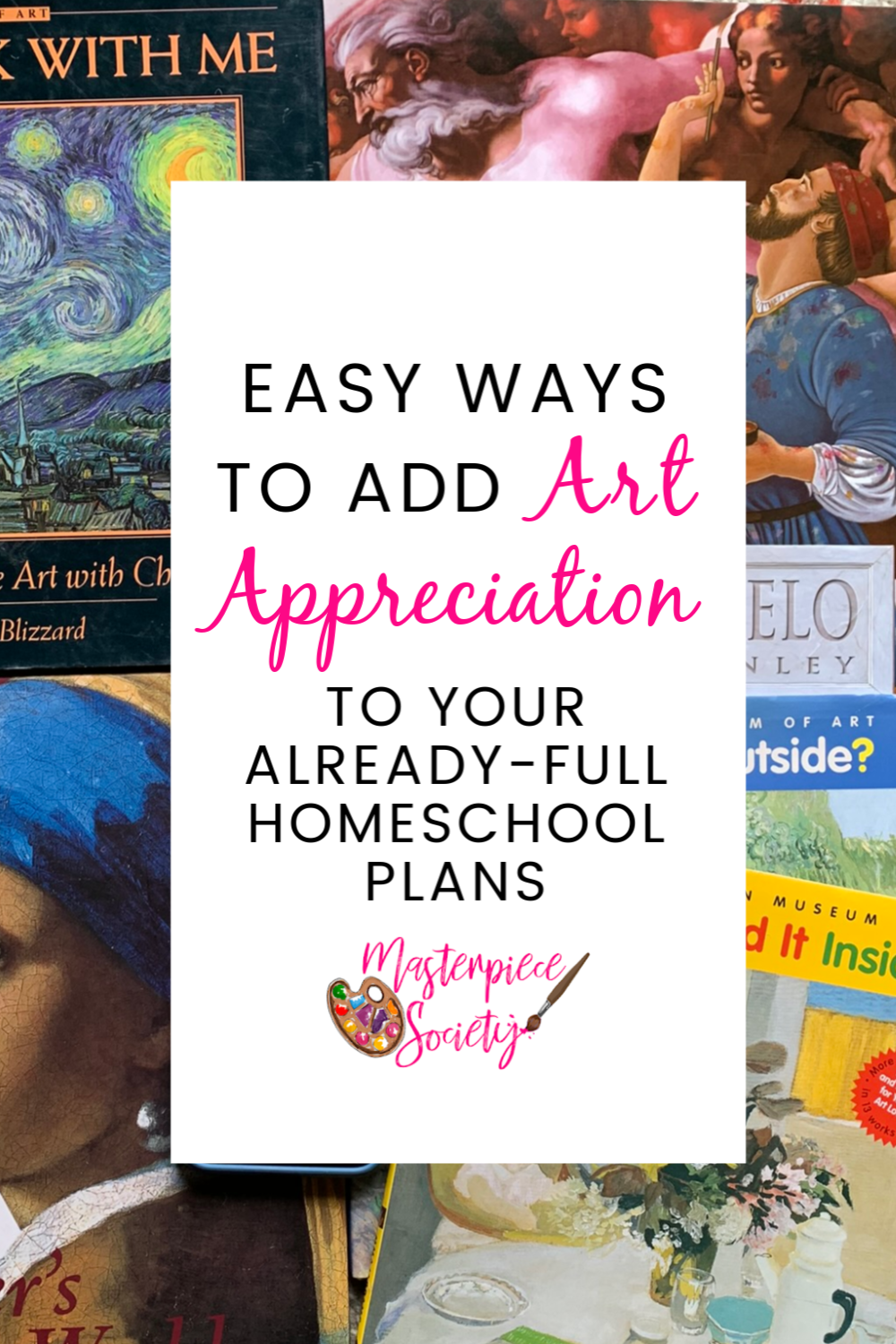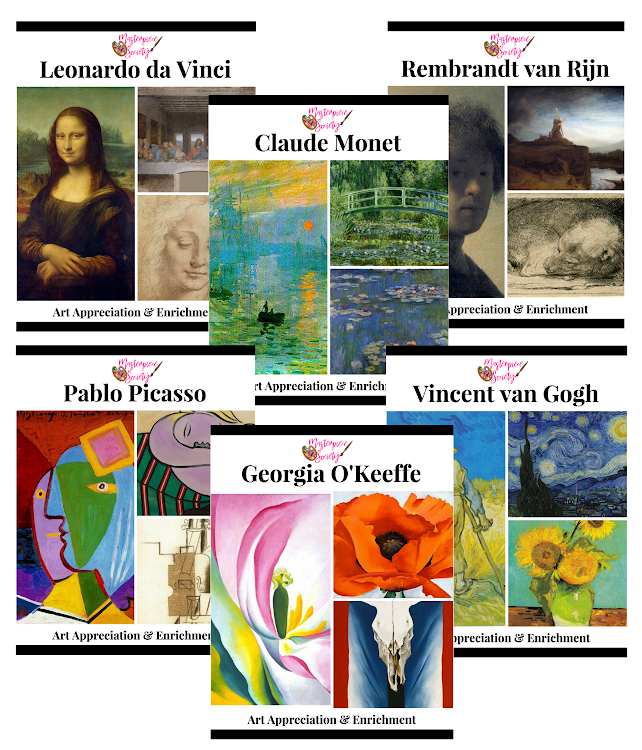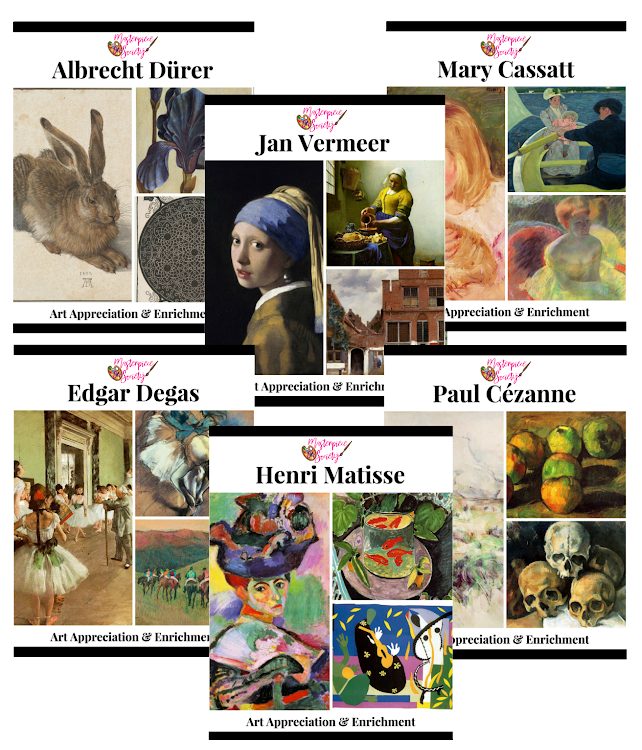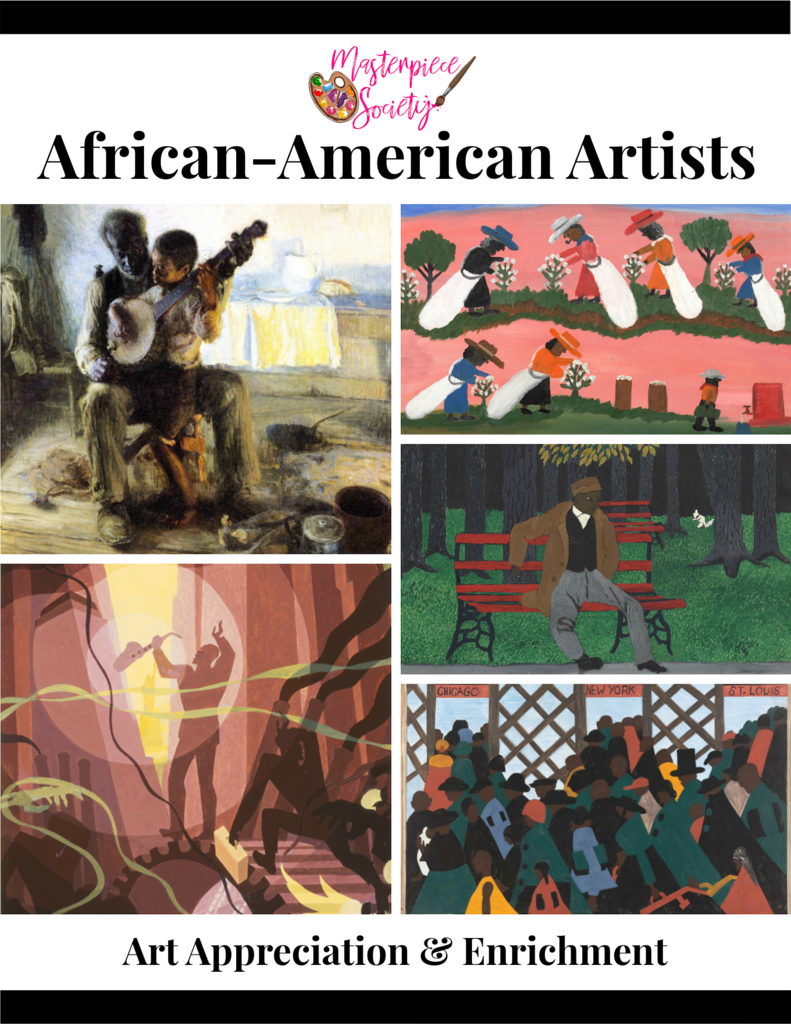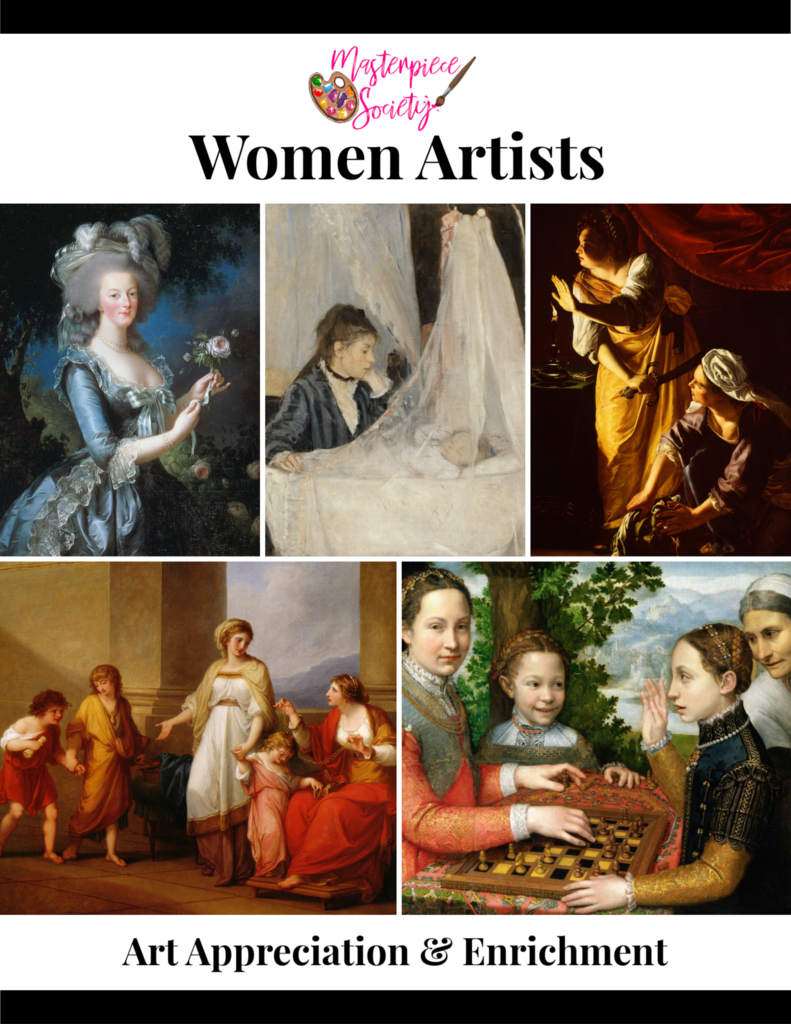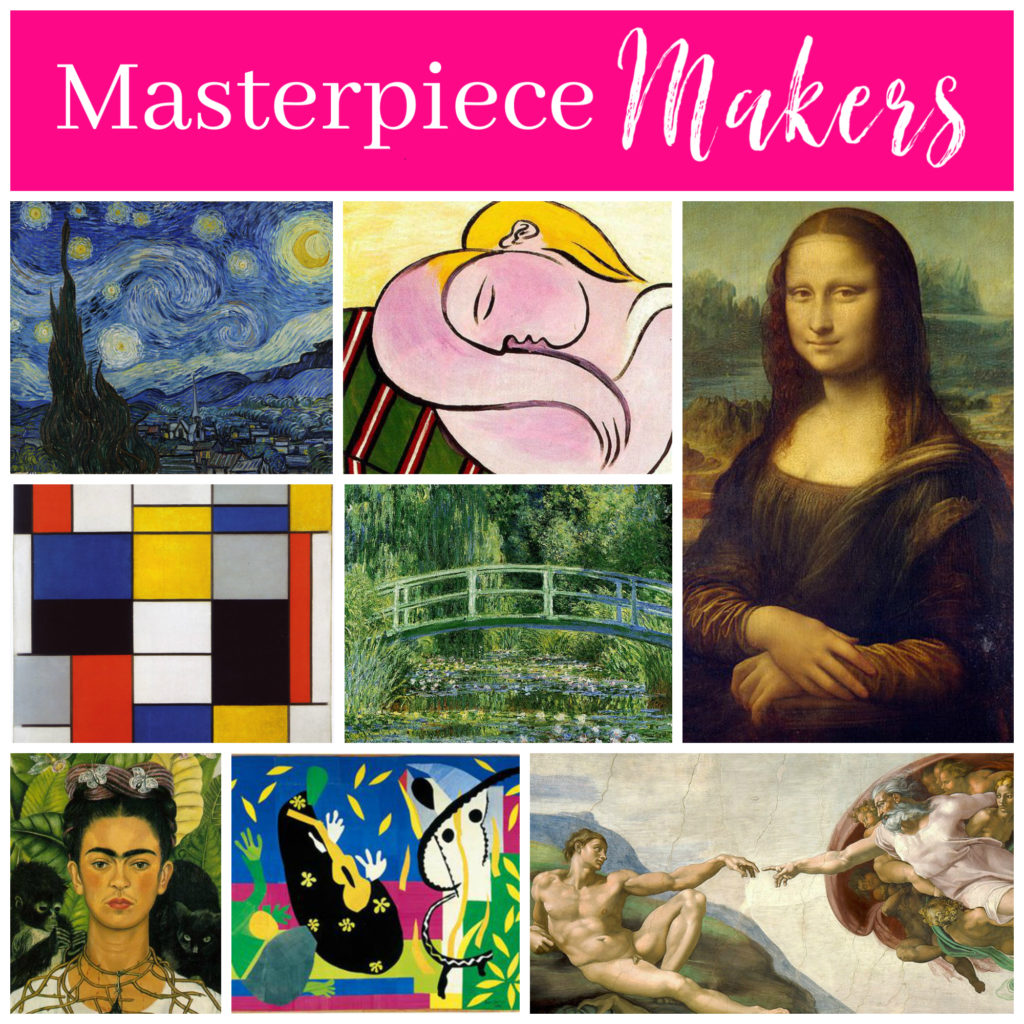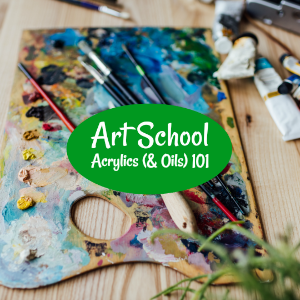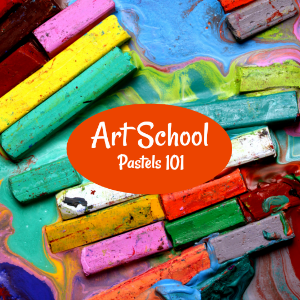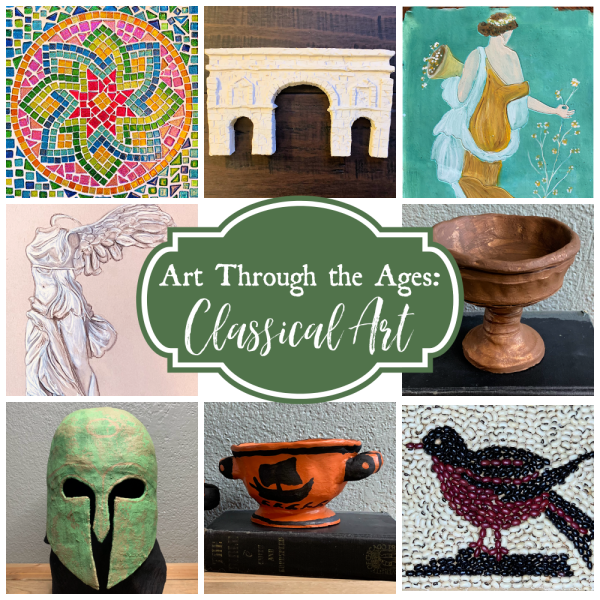Tired of leaving art appreciation on the back burner when homeschool life gets busy? Good news: we’ve got some seriously easy art appreciation ideas to share with you today. The best part is none of them require any preparation from you. Ready to hear more? Of course you are!

*This post contains referral links for recommended items; this means I could receive compensation if you take action through one of these links.*
None of us think twice about making time for math, language arts, and similar subjects when planning for our homeschools, but all too often the arts get pushed aside when we decide we simply can’t do it all. And, in our attempts to lighten our schedules, what gets pushed aside temporarily sometimes gets omitted completely. Even worse, the longer a subject is left out of the plans, the harder it can be to make it a regular part of your routine once you’re ready to try again.
That’s why I’m excited to share these easy art appreciation approaches with you. I want you to see for yourself just how easy it can be to make time for art, even if you don’t think you can fit it in or don’t have the bandwidth to plan another thing.
How to Add Art Appreciation to Your Already-Full Homeschool Day
Before we jump into these art appreciation suggestions, keep in mind that you don’t have to do them all to make significant progress in your art studies. While these suggestions work together nicely when combined, using just one of them consistently will go a long way in making art appreciation a regular part of your homeschool.
1. Artist Biographies
Whether worked into your morning basket or reading pile, including artist biographies in your homeschool plans makes for easy art appreciation, especially when you can’t find time to dig deep. It’s as simple as choosing a book about an artist, piling up on the sofa, and reading aloud.
For picture books, look for books like Degas and the Little Dancer from the Anholt’s Artists Books for Children series, Diane Stanley’s Michelangelo, and Barb Rosenstock’s Through the Window: Views of Marc Chagall’s Life and Art.
If you’d rather work through a book a little at a time, consider the following biography-style options that feature overviews for many artists:
- Women in Art: 50 Fearless Creatives Who Inspired the World
- 13 Artists Children Should Know
- A Child’s Introduction to Art: The World’s Greatest Paintings and Sculptures
- Vincent’s Starry Night and Other Stories: A Children’s History of Art
Lastly, chapter books are a great way to work art appreciation into your read aloud time. Whether you chose easier titles like Who Was Frida Kahlo? or meatier texts like Van Gogh and the Post-Impressionists for Kids a chapter or two a week can easily add art appreciation to your homeschool routine without overwhelming your schedule.
2. Masterpiece Makers Podcast
Need an easy art appreciation idea you can implement while driving across town or eating lunch together? Look no further than your favorite podcast app! That’s where you’ll find episodes of Masterpiece Makers.
In these episodes, Alisha and Olivia feature some of the world’s greatest artists and explore their lives and stories behind some of their most noteworthy pieces. Along with the artists themselves, they tackle the historical and cultural climates that surrounded the artists during their lives. This gives a sense of what fueled their creativity and in turn, how their artwork impacted the culture that inspired it.
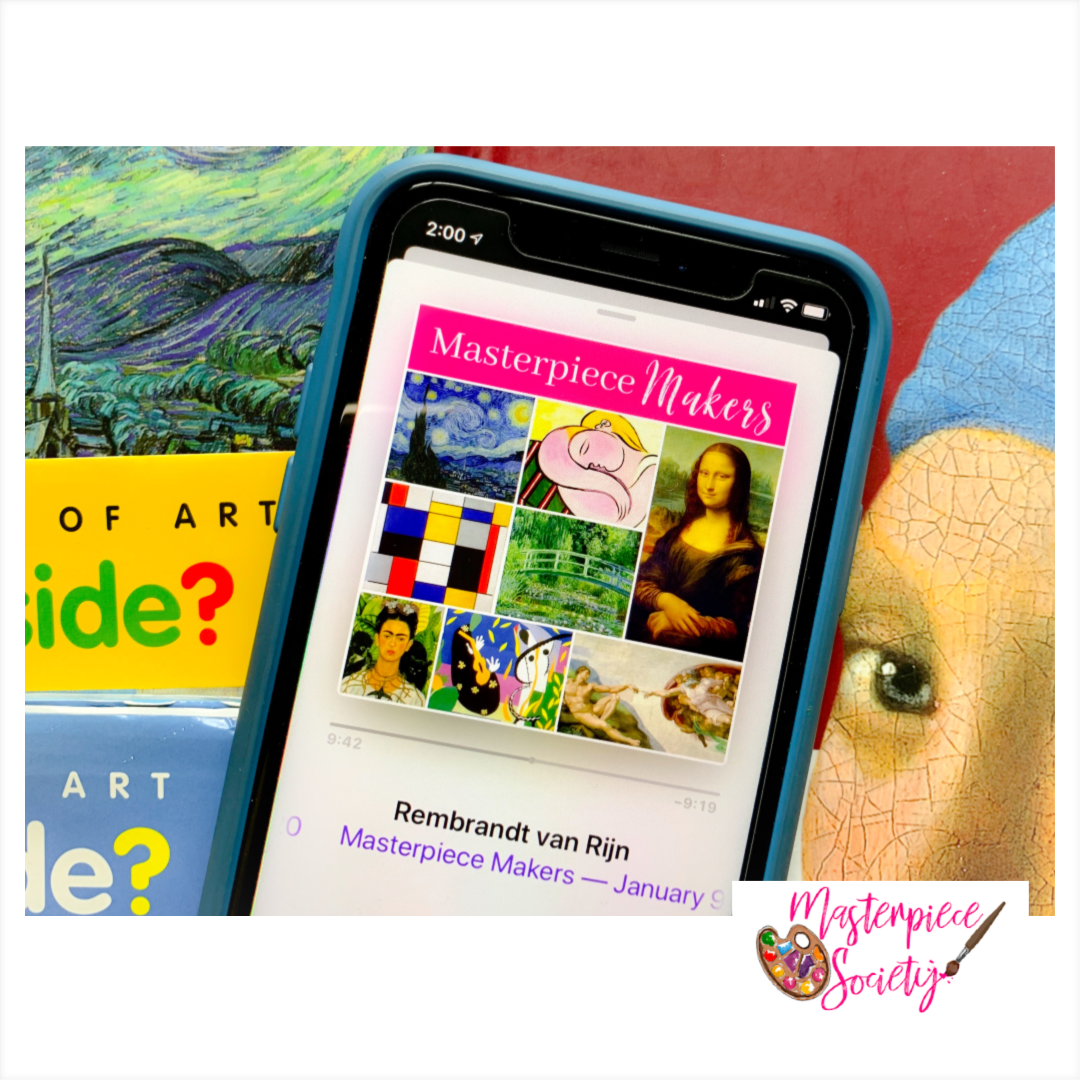
And before you begin to think these episodes amount to boring art lectures, you can rest assured there is technical talk and fun in equal measure. My kids and I have found that these episodes not only cover art appreciation in a literal sense, but also bring to light interesting facts and funny quirks that often get neglected in traditional artist study.
On that note, some of the most inspiring artists didn’t, ahem, always behave in the most exemplary way. While these choices are never the focus of the podcast episodes, they are sometimes referenced.
Because of that, I do recommend listening to these episodes in advance if you’re unfamiliar with the artist being discussed in a particular one. That will keep you from being blindsided by a specific quirk you weren’t quite prepared to discuss if questions should arise. 😉
3. Look and Find Art Books
If you’ve not discovered the world of look and find art books, it’s our pleasure to introduce you to this art appreciation gem. My youngest kiddo, now 8 years old, has acquainted herself with many a masterpiece since she started doing these art-based challenges as a preschooler.
There are several varieties of these books available, but they usually contain several works of art and include a list of items to find within each piece. The difficulty of the search varies from series to series, but the less challenging books usually include helpful talking points to go along with each work.
The more challenging books tend to let the art take center stage and simply encourage kids to study each piece by looking for the items listed. Either way, these are fantastic ways to encourage observation skills and to work art appreciation into a full schedule.
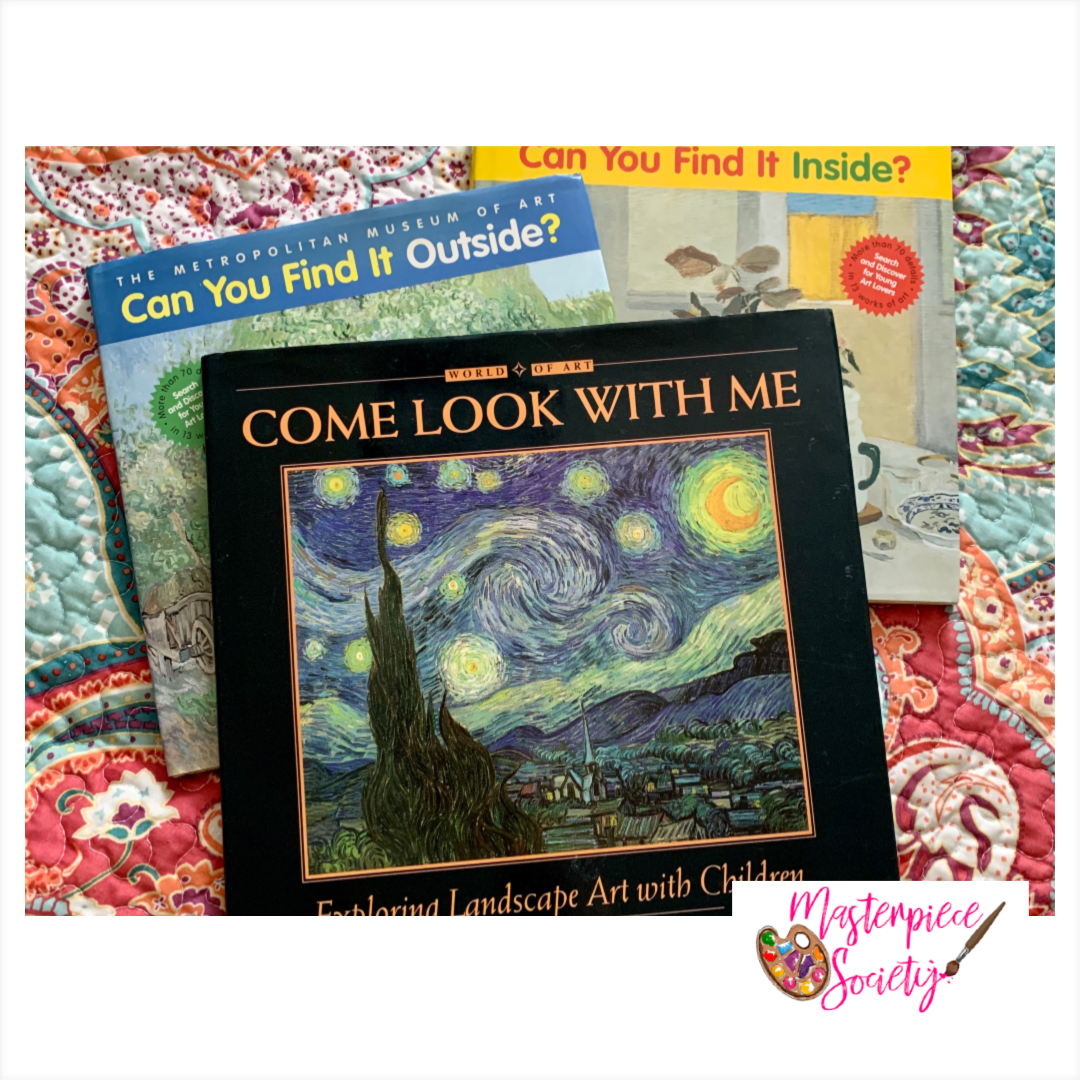
Not sure where to start with these look and find art books? Here are some of our favorites:
- Can You Find It? and Can You Find It, Too? – While we own several from this series, these are the two we borrow from the library over and over again. They can be quite challenging as you begin working through them, but they’re a wonderful way to explore works from various genres and eras.
- Can You Find It Outside? and Can You Find It Inside? – These are particularly nice for younger kids. There are considerably fewer items to find in each piece and the items listed are typically easier to find than in the original Can You Find It? volumes.
- Come Look with Me books – There are several volumes in this series, but we particularly enjoy Exploring Landscape Art with Children, Discovering Women Artists for Children, and The Artist at Work.
4. Art Appreciation Curriculum
Finally, I encourage you to let these open-and-go Masterpiece Society Art Appreciation units do the work for you! The units can be used as a full curriculum or as individual units to explore however you wish.
In particular, we like how the units highlight each artist by providing a biography with fun facts and quotes, while also studying three significant works of art in detail. This makes it easy to not only learn about the artist, but also to explore the reason their works are so remarkable.
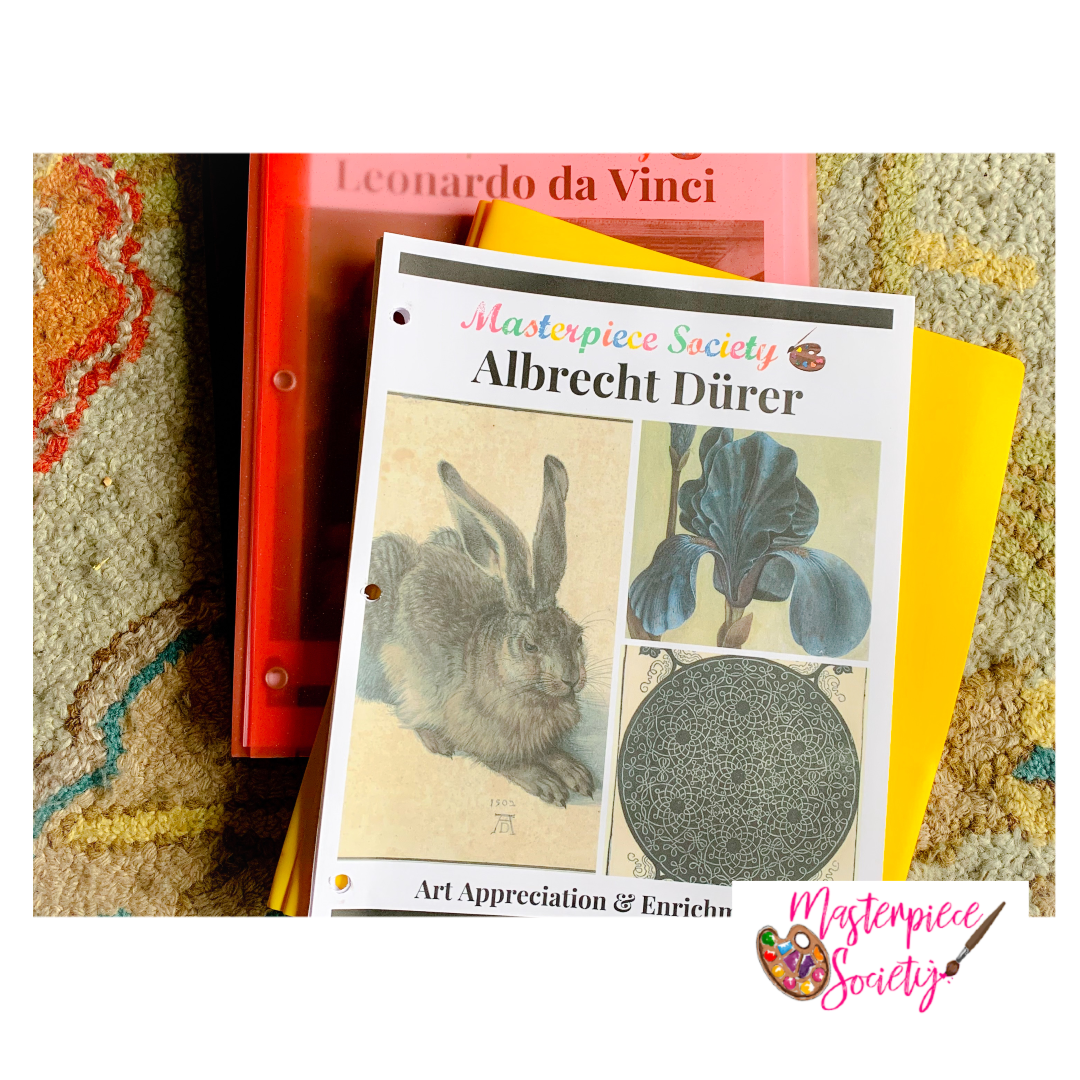
Want to learn more? You can find all the details and even grab a sample lesson from the Leonardo da Vinci unit here.
In closing, know that it really is possible to include art appreciation into your learning plans, regardless of how full your schedule may be. It all comes down to having the right resources on hand and carving out a small amount of time to enjoy them with your kids. 🙂
